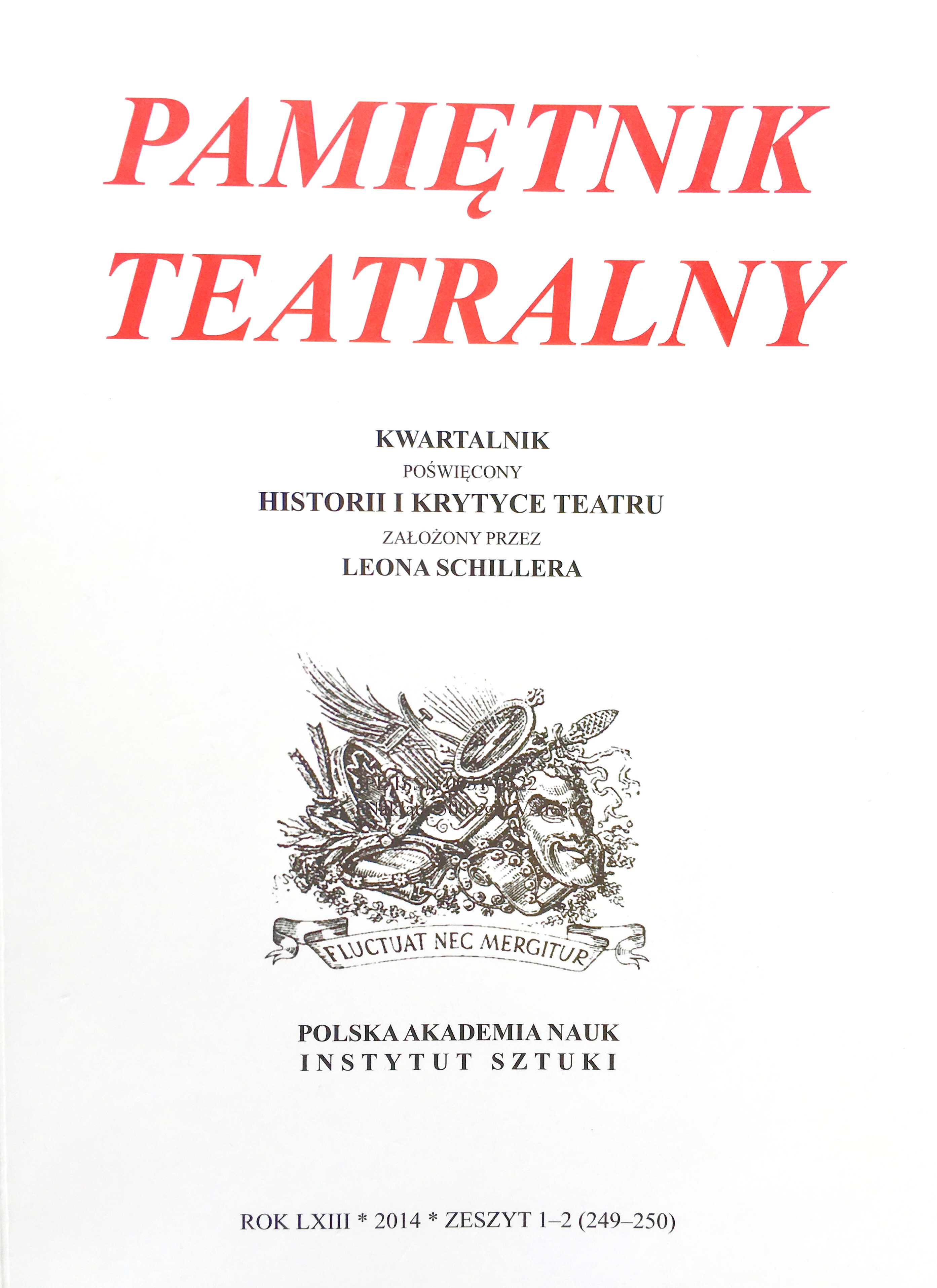Jan Chęciński, Z wycieczki za granicę
Jan Chęciński, From a Trip Abroad
Contributor(s): Agnieszka Wanicka (Editor)Subject(s): Theatre, Dance, Performing Arts
Published by: Instytut Sztuki Polskiej Akademii Nauk
Keywords: theatre history;Polish theatre;19th century theatre;
Summary/Abstract: Jan Chęciński’s text titled From a Trip Abroad is a unique document in the Polish theatrical writing of the 19th century. Jan Chęciński (1826–1874) spent nearly his whole life in Warsaw. Since 1850 until his death, he worked as an actor in government Warsaw Theatres. Acting was just one of many activities of this hard working and creative artist. He was a highly regarded comedy writer, a children’s books author, a librettist (e.g. of The Haunted Manor by Stanisław Moniuszko), a translator, a prompter, and even an author of an Italian language textbook. In the history of Polish theatre he appears as the last director of the Drama School (1864–1868), a valued teacher, a class tutor of many actors as well as a director. Especially the function of a director in Warsaw Theatres (1868–1872, 1873–1874) during the so-called “star era” brought him the greatest recognition. On 9 August 1867, Chęciński is permitted a leave of absence to take a journey to Kingdom of Prussia and Austria. He arrives in Poznań mid August, and then leaves for Vienna and Cracow through Wroclaw. From there, he sets out for a trip into the Tatra Mountains. He arrives in Lemberg (now Lviv) in mid September. He publishes his reports from the journey in Gazeta Polska (1867, issues 256–267) under the title From a Trip Abroad. And as it was Chęciński who took the trip, it had to be connected to theatres. The text is a reportage written by a man of theatre about theatre, which makes it very special. Chęciński relates his impressions, observations and draws contemporary readers into the world of the 19th century theatre. The experience of the author is very important: he knows theatre on nearly every level – dramatic, acting and directorial – and therefore he can notice many details and explain mysteries of the theatrical life of the period. The document can be considered a treasure for a historian of the 19th century theatre – it allows him to visit the theatres of Poznań (where artists of Cracow performed), Vienna and Lviv at the turn of August and September of 1867 and see the venues through the eyes of an expert, who – as an experienced poet and dramatist – has an excellent writing style. Compelling descriptions of the public, actors’ performances (with very interesting analysis of Vienna actors’ craft) as well as a director’s look at the dramatic, ballet and opera performances can be found here. Chęciński does not judge the actors or plays, but merely tries to understand and explain the actors, appreciate the effort in the staging. The accounts from the stay in Lviv, where the author had the pleasure to talk to Aleksander Fredro, are of another value.
Journal: Pamiętnik Teatralny
- Issue Year: 250/2014
- Issue No: 1-2
- Page Range: 185-211
- Page Count: 27
- Language: Polish

